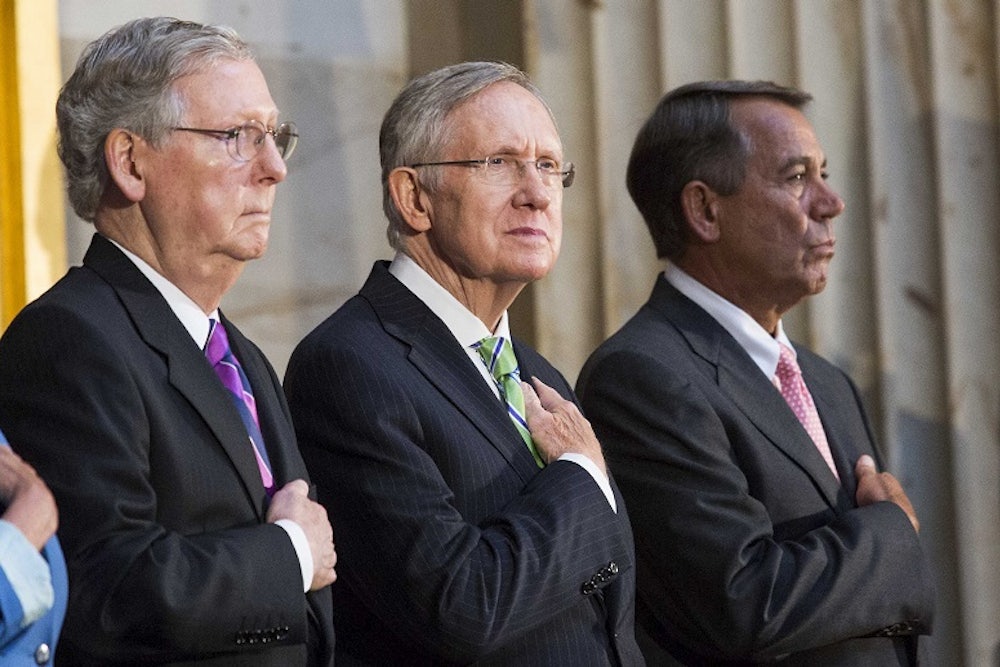Last week, the White House threatened to veto a deal between Senate Majority Leader Harry Reid and House Ways and Means Chairman Dave Camp to extend or make permanent more than 50 expired tax breaks. It was a terrible deal and President Obama was right to kill it. In response, House Republicans have proposed a short-term extension of these so-called tax extenders. This time, Obama and Senate Democrats should accept it.
The Reid-Camp deal was flawed for a number of reasons: It was bad for the environment, bad for the deficit, bad for low-income Americans and very good for big business. But two reasons stand out above the others. First, it would have permanently lowered the long-term revenue baseline. By making certain tax breaks permanent—like the credit for R&D—without including a corresponding revenue offset, the deal would have lowered federal revenues in the future. Any revenue-neutral tax reform would leave less money for Democrats to spend on policies like universal pre-k. A short-term extension, on the other hand, would have little effect on future revenues, keeping the revenue baseline at its current level.
Second, the Reid-Camp deal forfeited the Democrats’ leverage to make permanent the provisions to the Earned Income Tax Credit and Child Tax Credit, which expire at the end of 2017. If those provisions are not renewed, 16 million Americans would be pushed into—or deeper into—poverty, according to the Center for Budget and Policy Priorities. The tax extenders are a perfect vehicle for Democrats to make those breaks permanent. Their exclusion from the final deal was one reason that the White House issued a veto threat. A short-term extension does not relinquish that leverage.
These temporary extensions are certainly not the optimal policy for addressing the tax extenders. They make it harder for companies to plan for the future while driving up the deficit. But in the absence of tax reform, there isn’t a better way to deal with them. At the very least, some of the extenders will deliver mild benefits to the economy—and a larger deficit, in the short-term, is welcomed.
